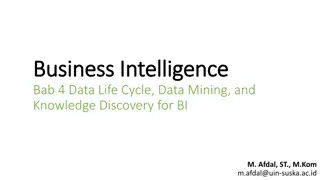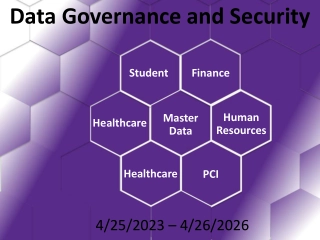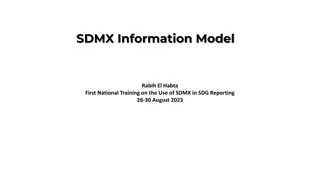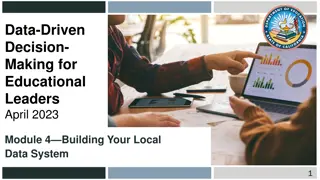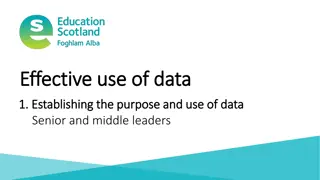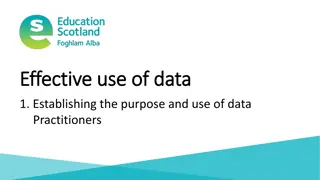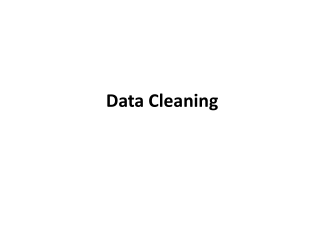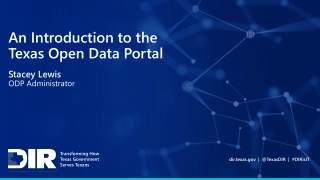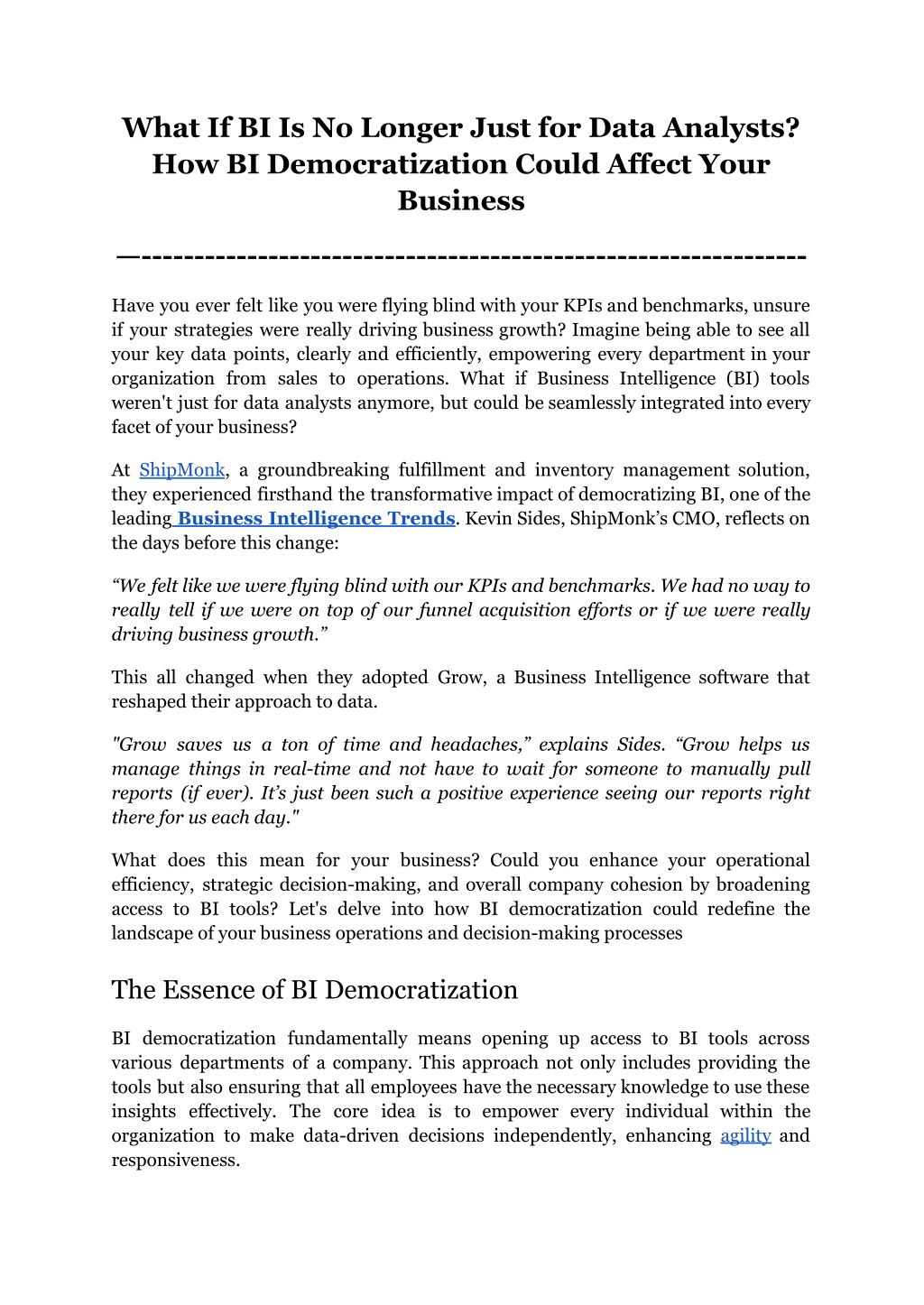
What If BI Is No Longer Just for Data Analysts_ How BI Democratization Could Affect Your Business
Explore the transformative potential of Business Intelligence (BI) democratization in this insightful blog. Discover how making BI tools accessible to non-analysts aligns with emerging Business Intelligence Trends, enhancing decision-making, streamlining operations, and fostering a collaborative, data-driven culture within your organization.
Download Presentation
Please find below an Image/Link to download the presentation.
The content on the website is provided AS IS for your information and personal use only. It may not be sold, licensed, or shared on other websites without obtaining consent from the author. Download presentation by click this link. If you encounter any issues during the download, it is possible that the publisher has removed the file from their server.
Presentation Transcript
What If BI Is No Longer Just for Data Analysts? How BI Democratization Could Affect Your Business --------------------------------------------------------------- Have you ever felt like you were flying blind with your KPIs and benchmarks, unsure if your strategies were really driving business growth? Imagine being able to see all your key data points, clearly and efficiently, empowering every department in your organization from sales to operations. What if Business Intelligence (BI) tools weren't just for data analysts anymore, but could be seamlessly integrated into every facet of your business? At ShipMonk, a groundbreaking fulfillment and inventory management solution, they experienced firsthand the transformative impact of democratizing BI, one of the leading Business Intelligence Trends. Kevin Sides, ShipMonk s CMO, reflects on the days before this change: We felt like we were flying blind with our KPIs and benchmarks. We had no way to really tell if we were on top of our funnel acquisition efforts or if we were really driving business growth. This all changed when they adopted Grow, a Business Intelligence software that reshaped their approach to data. "Grow saves us a ton of time and headaches, explains Sides. Grow helps us manage things in real-time and not have to wait for someone to manually pull reports (if ever). It s just been such a positive experience seeing our reports right there for us each day." What does this mean for your business? Could you enhance your operational efficiency, strategic decision-making, and overall company cohesion by broadening access to BI tools? Let's delve into how BI democratization could redefine the landscape of your business operations and decision-making processes The Essence of BI Democratization BI democratization fundamentally means opening up access to BI tools across various departments of a company. This approach not only includes providing the tools but also ensuring that all employees have the necessary knowledge to use these insights effectively. The core idea is to empower every individual within the organization to make data-driven decisions independently, enhancing agility and responsiveness.
This trend is part of the broader BI trends in the UK and globally, where there's a growing acknowledgment that insights departments. Instead, when more people can access and interpret business data, the organization as a whole becomes more informed, proactive, and aligned. shouldn't be siloed within specific The Shift in BI Users Business intelligence (BI) is no longer the exclusive domain of data analysts. As BI software becomes more intuitive and integrated into various business functions, a diverse range of professionals is now leveraging these tools to enhance their decision-making capabilities. This shift is reflective of broader BI trends in the UK and globally, where the democratization of data is reshaping how businesses operate. Broadening the BI User Base Historically, BI tools were complex systems managed by IT and data specialists. However, with advances in Business Intelligence software, these tools have become more user-friendly, enabling non-analysts to gain insights without deep technical expertise. This change is driven by the need for faster decision-making and more agile responses to market dynamics, which are crucial aspects of current Business Intelligence Trends. Marketing managers, HR personnel, and operations leaders are among the many roles now utilizing BI software to optimize their workflows and strategic initiatives. For instance: Marketing Managers: Marketing Managers at Sebo Marketing dramatically enhanced their campaign strategies by using Grow BI software, enabling them to see which actions were most effective in real time. Bruce Rowe, president of Sebo, noted the significant efficiency improvement, stating, "Grow helps us be more efficient. We get things done about 20% faster." This integration of BI tools allowed for more precise adjustments and better resource allocation, optimizing both performance and costs. HR Personnel: Human Resources departments employ BI to analyze employee data, helping them identify trends in staff turnover, employee satisfaction, and the effectiveness of recruitment strategies. This allows for more informed decisions regarding talent management and development programs. Operations Leaders: Operations Leaders at Altaworx have transformed their operational strategies using Grow BI dashboards, allowing them to optimize processes and spot key opportunities for revenue optimization. Forrest Derr, Director of Finance and Automation, leveraged Grow to develop customizable dashboards that streamline the monitoring of dynamic business metrics without constant coding. This enhanced visibility has not only 2
streamlined operations but also improved cash flow management, significantly impacting their operational efficiency and cost-effectiveness. These Business Intelligence examples demonstrate how integrating BI tools into diverse roles can lead to significant improvements in business operations, aligning with BI trends in the UK that emphasize operational efficiency and data-driven management. Training and Support for New BI Users The transition to a wider user base for BI tools requires an effective training and support system. Ensuring that non-analysts are comfortable using BI software involves: Tailored Training Programs: Developing training modules that cater to the varying levels of technical expertise across different departments. This might include basic data literacy courses as well as more advanced analytics training for those who require deeper insights. Ongoing Support: Establishing a support system that can assist users with technical issues and help them understand how to interpret data correctly. This often involves a combination of IT support and peer-to-peer learning networks. Feedback Mechanisms: Implementing feedback loops where users can suggest improvements to BI tools and training, ensuring that these resources evolve to meet the changing needs of the business. What are the Business Impacts of BI Democratization? The democratization of Business Intelligence (BI) represents a pivotal shift in how companies across sectors leverage data. By making BI tools accessible to a broader range of roles within the organization, companies can harness a wealth of untapped insights, driving significant improvements in various business aspects. This evolution aligns with current Business Intelligence Trends and is particularly noticeable in the adoption and implementation rates within the UK. Enhanced Decision-Making Across All Levels One of the most immediate impacts of BI democratization is the empowerment of non-technical staff to engage with data-driven decision-making. Business Intelligence software, designed to be intuitive and user-friendly, enables employees from marketing to operations to access and analyze data pertinent to their specific roles. This shift promotes a more agile business environment where decisions are made swiftly and are more aligned with real-time data, reflecting key BI trends in the UK and globally. 3
For example, a sales manager in a retail company can use BI software to analyze daily sales data, identify trends, and adjust strategies almost instantaneously. This capability not only boosts the efficiency of individual departments but also enhances the company's overall responsiveness to market changes. Breaking Down Silos and Enhancing Collaboration BI democratization often leads to a more collaborative workplace. With multiple departments accessing the same data through BI tools, there's a natural alignment of goals and strategies. This environment encourages a culture of shared insights and collective problem-solving, crucial for driving the company forward as a cohesive unit. In the context of BI trends UK, where many industries are highly competitive, the ability to quickly share and act on data across departments can be a game-changer. For instance, the marketing and product development teams can collaborate more effectively by using shared data to tailor products to customer preferences identified through marketing campaigns. Cultivating a Data-Driven Culture The widespread adoption of BI tools instills a data-driven mindset throughout the organization. This cultural shift is significant, as it changes how teams approach problems and develop solutions. A data-driven culture is not just about accessing data but about valuing empirical evidence over intuition or tradition, a key element underscored by current Business Intelligence Trends. This transformation is evident in companies where even the upper management uses BI dashboards to track company performance and set benchmarks. Such practices ensure that decisions at all levels are informed by data, thereby improving the strategic direction of the company. Operational Efficiency and Cost Reduction By enabling more employees to access and utilize data, BI software can significantly reduce the time and resources spent on data processing and analysis. This efficiency gain translates into cost savings, as less time is needed to produce reports and more time can be devoted to strategic activities that contribute to revenue growth. For example, an operations manager using BI tools to optimize supply chain processes can identify cost-saving opportunities in real-time, such as adjusting inventory levels based on predictive analytics provided by BI software. Conclusion 4
As we explore the implications of a world where Business Intelligence (BI) is not confined to data analysts, it becomes clear that BI democratization could revolutionize how businesses operate. By equipping a diverse range of employees with the tools to access, analyze, and act upon data, companies can foster a more dynamic, informed, and efficient environment. decision-making across all levels but also promotes a unified, data-driven culture that can drive substantial business growth. This not only enhances Implementing a user-friendly BI platform like Grow can be a pivotal step in this transformation. Grow offers the flexibility and ease of use needed to make BI accessible to everyone within your organization, not just the data experts. Whether you're looking to streamline operations, enhance strategic planning, or boost collaboration, Grow provides the tools to make these goals achievable. Interested in seeing how Grow can help democratize BI in your business? Take advantage of Grow's 14-day free trial and start experiencing the benefits of accessible data today. Additionally, for a more informed decision, check out "Grow Cost & Reviews on Capterra" to see how other businesses like yours have transformed with Grow's BI solutions. Don't let the potential of your data be limited by traditional boundaries. Expand BI access within your organization and watch as it transforms decision-making, fosters innovation, and drives your business forward. 5


